‘Our bones buried under the Constitutional Court’
Meet some of the people who have held the steps of the apex court for more than three weeks, sleeping out in the cold to demand reparations for apartheid crimes.
Author:
20 May 2022
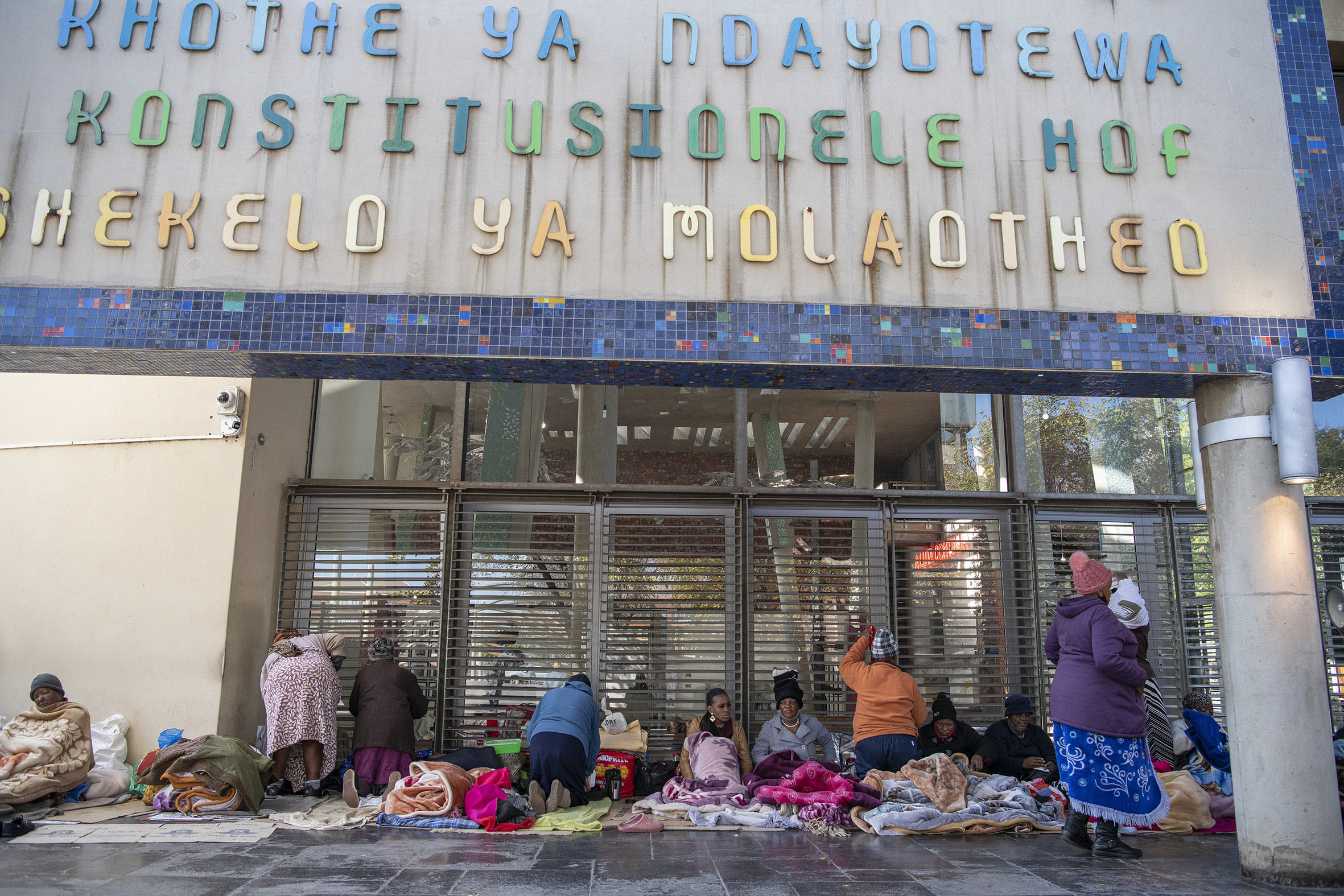
Around 70 survivors of apartheid crimes could continue their occupation of the Constitutional Court in Braamfontein, Johannesburg, into what promises to be a frigid weekend. The mostly elderly activists have held the steps of the famous court since Freedom Day on 27 April. They are demanding to speak with President Cyril Ramaphosa after a 10 May meeting with the minister of justice and correctional services, Ronald Lamola, failed to resolve their demands for Truth and Reconciliation Commission (TRC) reparations for apartheid-era atrocities.
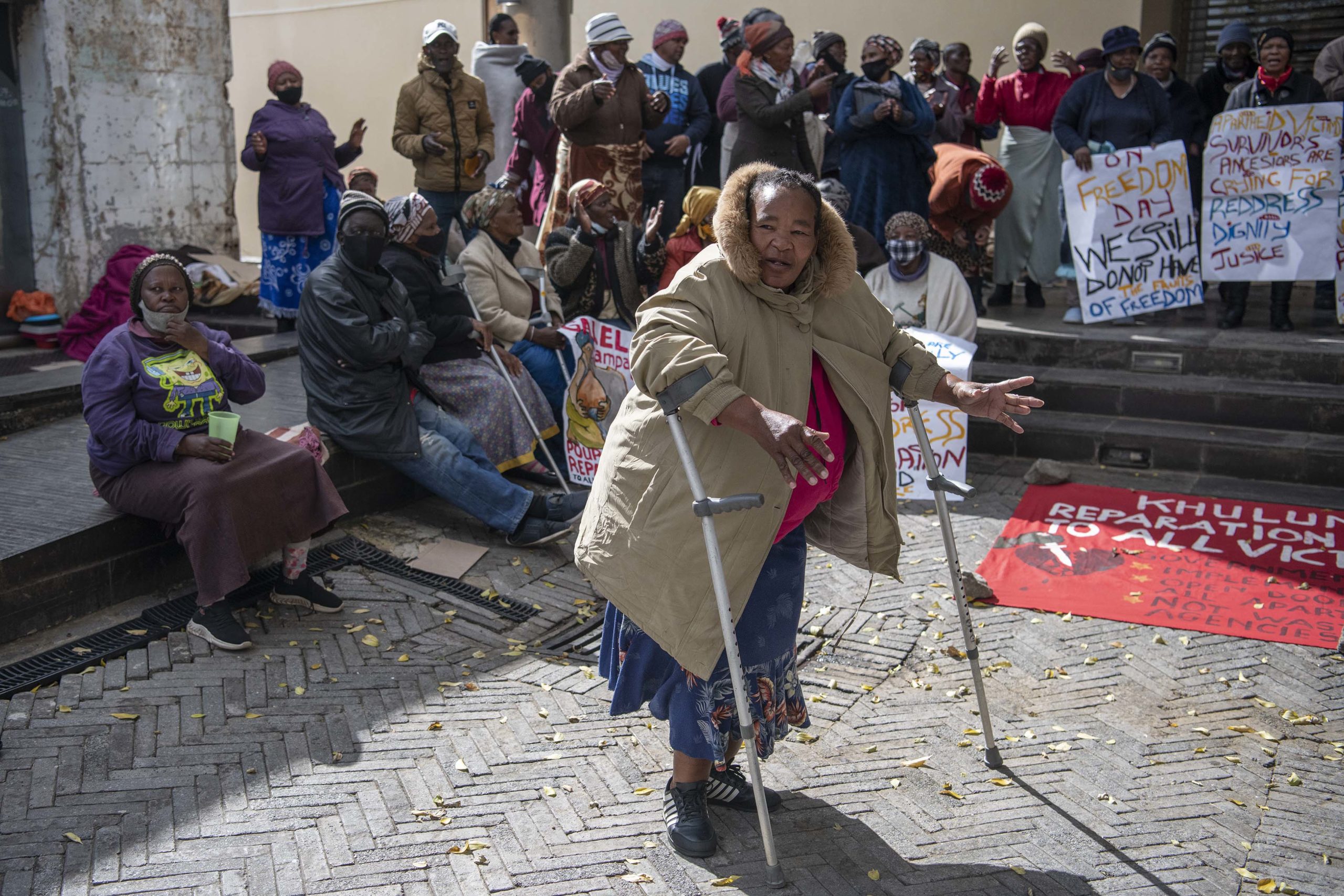
During the occupiers’ daily rallies, the Gauteng provincial chairperson of the Khulumani Support Group, Nomarussia Bonase, has taken to promising that “the government will have to find our bones buried under the Constitutional Court before we leave”.
But it is for bones already in the ground that most of the occupiers are maintaining their vigil.
Haunting violence
Gladys Siawela, 62, whose cheeks are as leathery as her hands, can sometimes still hear the pulse of the South African army helicopters – “Dooh, dooh, dooh, dooh, dooh!” – that ferried in the regular and violent raids of her home in Lady Frere in the former Transkei. “It is still painful in my ears,” she says. A young Siawela never understood what the elders in her family and community who were being arrested had done wrong. Some returned home after three years, others never did.
Apartheid’s brutality haunted Siawela’s steps from the Eastern Cape to Gauteng. She was detained in Johannesburg for seven days in the early 1980s for not carrying a pass. Later, in 1986, she was again arrested and jailed, this time together with her five-year-old son for a month in Germiston without charge. And then, during a police-led raid of her shack settlement in 1992, her son was killed. Police dogs attacked him. His shoulder was broken. When she later found his body in a nearby hospital, his chest was punctured with bullet wounds.
Germiston was at the heart of bloodletting instigated by apartheid police on the East Rand in the early 1990s, when more than 3 000 people were killed. Siawela remembers that the violence turned Germiston’s green grass black.
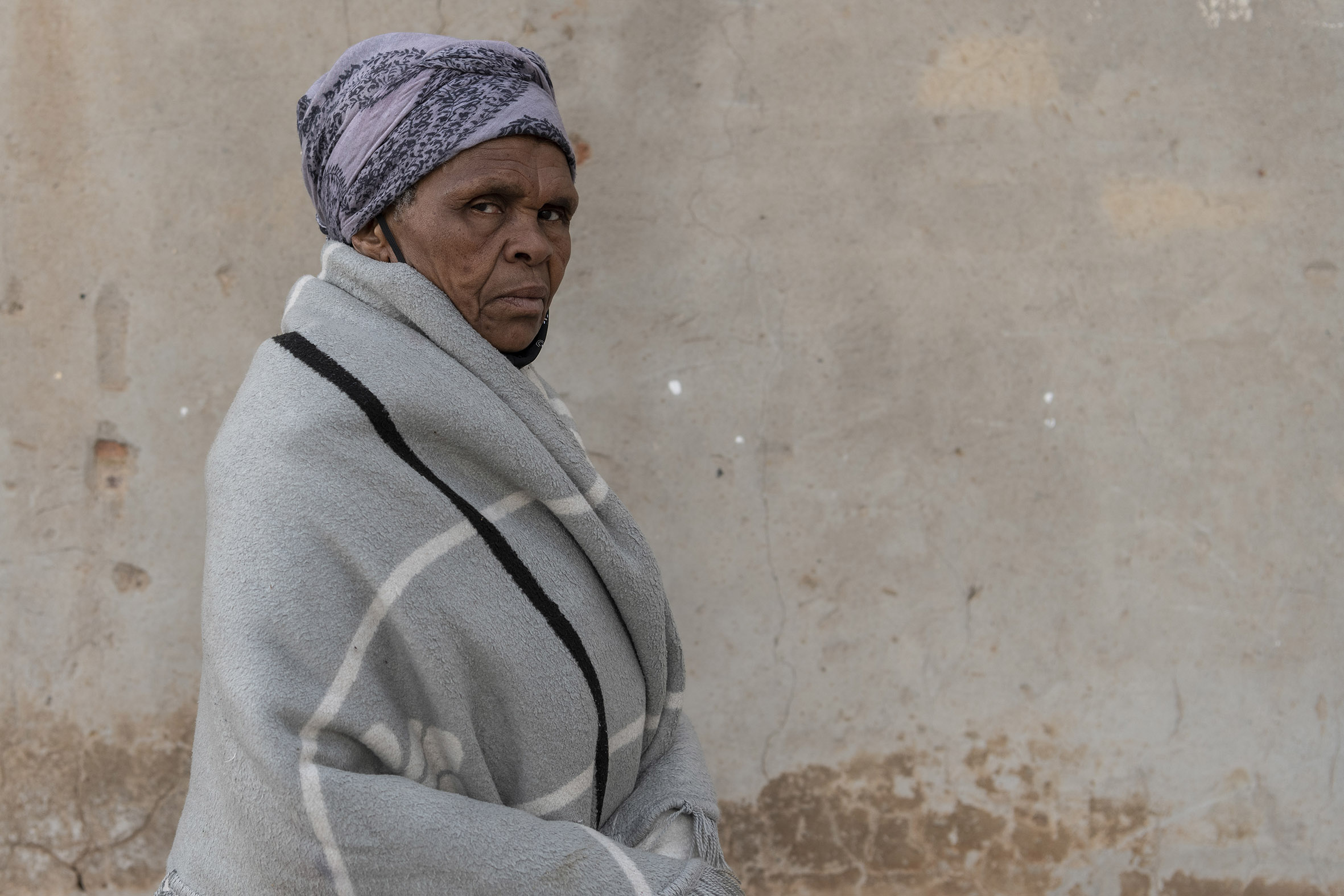
Around the same time that Siawele and her son languished in a Germiston prison, police murdered Nkululeko Meyi’s mother before dragging her body into the street in Crossroads in Cape Town, where they left her for him to discover. Meyi remembers lying in the dust with his mother’s body in his arms. In the space of 10 days in May that year, 44 people were killed in violence stoked by the police-backed witdoeke vigilantes in the city’s shack settlements. A year earlier, police massacred 18 people in one day in Crossroads.
Now 69 years old with an unkempt, silvery beard, Meyi is one of the first Constitutional Court occupiers to shake off the cold in a patch of sun every morning. His mother, a carefree person, he says, never irritable or mean hearted, had followed him to Cape Town to run his spaza shop while Meyi looked for work. “Inhliziyo isab’hlungu [My heart is still sore],” says Meyi, who is convinced that his asthma today is down to the amount of police teargas he inhaled in Cape Town, where he later returned as a municipal street cleaner.
Meyi, who never received any TRC reparations, says that he took his mother’s case to the commission, but had “the door shut in front of [him]”.
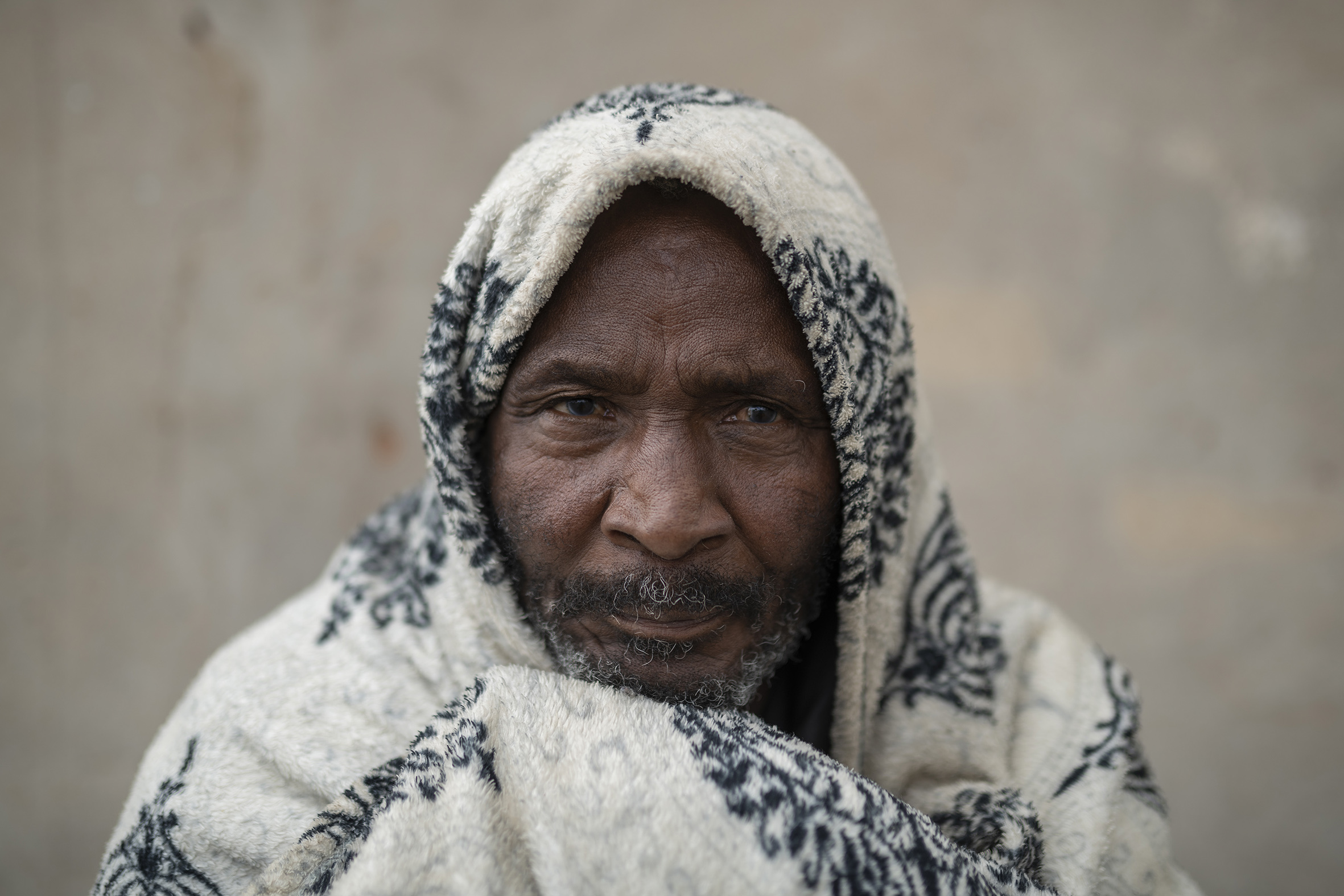
Broken, but not silenced
Joyce Ntoni, 79, with her uncommon blue-ringed grey eyes, is another occupier still waiting for reparations. The windows of her Cradock home were regularly shattered, the door kicked in, and her daughter beaten and detained. As the chairperson of the Cradock Youth Association, where she worked closely with the four community activists later murdered and christened the Cradock Four, Ntoni’s daughter was a constant police target. As a member of the ANC Women’s League branch in Cradock, Ntoni was also active in the struggle. She would tell police closing in on her daughter, “If you are going to arrest her, you must arrest me too”.
Proud of her daughter’s “too active” role in the anti-apartheid struggle, Ntoni now feels sure that it was the stress of these repeated invasions that later led to her daughter’s death from unspecified health complications. After the apartheid authorities began murdering activists, and once those who survived started to flee, Cradock, on the upper stretches of the Eastern Cape Great Fish River, became a “broken” town, says Ntoni.
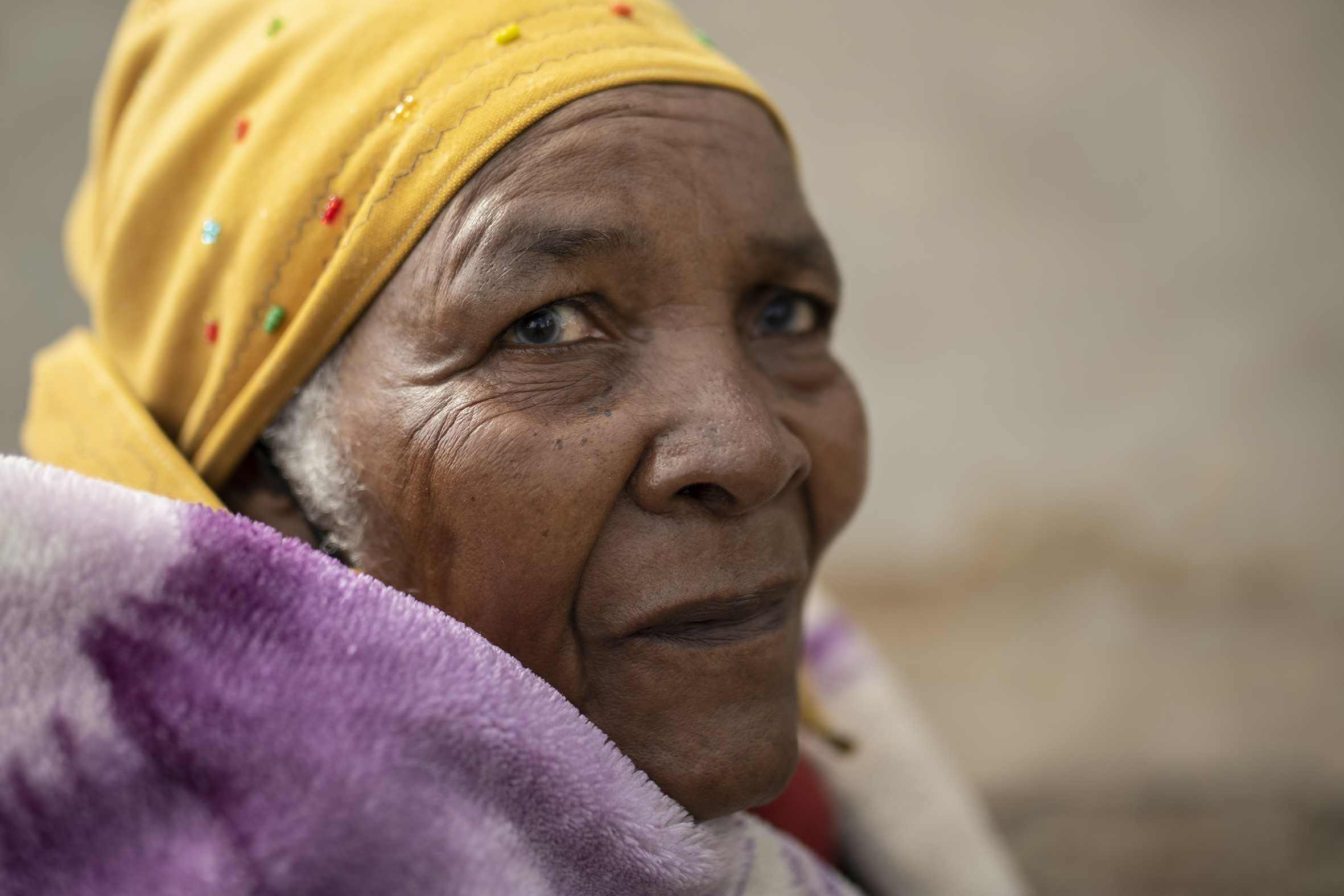
Ntoni, Siawela, Meyi and their fellow occupiers continue to sleep on concrete floors with no shelter. With the bitter cold and possible thunder showers rolling into Gauteng this weekend, there is no indication yet that Ramaphosa intends to meet with the occupiers.
Update: The occupation ended on 21 May.
